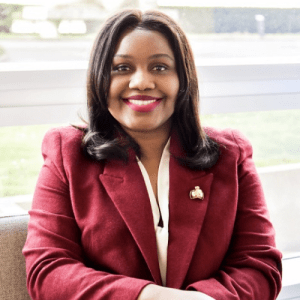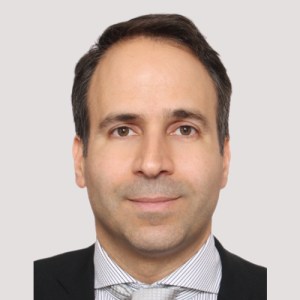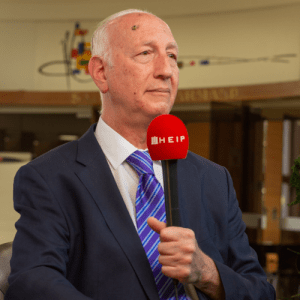The CEDS has offered me the opportunity to develop my potential in relation to the knowledge and experience I have acquired during my 10-year career in diplomacy. I have been fortunate to work with highly qualified professors who have contributed to turning my reflections and research on the alternatives offered by South-South Cooperation into a book that will soon be published with the agreement of the CEDS. During my year in the classroom, I remembered above all the importance given to a fine analysis of situations and their contextualization in an evolving framework. This doctoral training allowed me to contribute at the highest level to the implementation of the foreign policy defined by the government of my country and to preserve the interests of the Haitian Nation on the international scene.

Maryse Saint-Pierre Cyprien, Diplomat
Maryse Saint-Pierre Cyprien, a Haitian national and career diplomat, is currently Minister-Counsellor at the Permanent Delegation of Haiti to UNESCO, Administrator of Public Funds and Treasurer of the Group of Francophone Ambassadors of UNESCO.
At CEDS, she completed her doctoral training in International and Diplomatic Relations (2018-2022).

Ziad Taan, First Counselor at the Lebanese Embassy in Paris
A Lebanese career diplomat, Ziad Taan joined the Lebanese Ministry of Foreign Affairs and Emigrants in July 2003. He currently holds the position of First Counselor at the Lebanese Embassy in France, and has done so since April 2018.
At CEDS, he completed the PhD program in International Relations and Diplomacy.
The highlight was a simulation exercise of a UN Security Council meeting. It is an enriching training, which allowed the diplomat that I am to return to the “benches of the university”, and to review certain theoretical aspects of international relations, after having experienced them in my professional life, that is to say with a different perspective compared to the one I had during my university studies before joining the Lebanese diplomatic corps. I strongly encourage people who are interested in international relations, particularly through their professional duties and responsibilities, and who are aiming to obtain a doctorate, to consider the CEDS as one of the most interesting options available in Paris.
The quality of the professors was exceptional, both in terms of their knowledge and their experience in international relations. The fact that my classmates came from all over the world was another plus; it made for fascinating conversations and lasting contacts. The knowledge I gained at CEDS, and in particular during the research and writing of my thesis, served as a springboard to a new career. I had been a journalist before, and remained so afterwards, but I also started teaching and continued to research the subject of my thesis: land leases. Today, my academic work dominates. That said, the transition seemed natural, as both careers involve seeking out information and providing it in the most useful way possible for those who receive it. For me, the greatest validation of my work – and the one that reflects what CEDS has enabled – is that my work is now cited in the latest edition of the textbook I used when I was taking the international law course at CEDS.

Mickael Strauss, Advisor to the UN Special Rapporteur
Michael Strauss is a professor at CEDS and co-director of one of the CEDS book series. Today, he also works as an advisor to the UN Special Rapporteur on Unilateral Coercive Measures and Human Rights.
Within the CEDS, he attended the courses of Ph.D. in 2002-2003.


